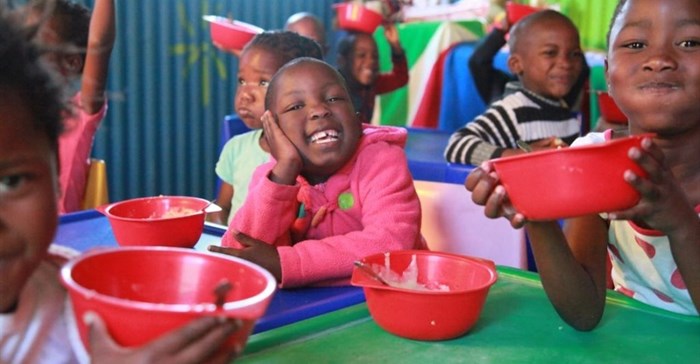
However, there are millions of South African children who don’t get the relief a simple snack would bring. In fact, there are close to four million South African children who go to bed with rumbling tummies and headaches every night. It is these children and families around the world who are the focus of the United Nations’ Food and Agriculture Organisation on World Food Day that was recognised recently.
“World Food Day (WFD) is celebrated each year on October 16 to promote worldwide awareness and action for those who suffer from hunger and for the need to ensure food security and nutritious diets for all,” explains the FAO website.
Putting compassion aside, why should we raise awareness and action? Why should better-off South Africans care about the poverty and hunger of others?
Unless we can begin to know what it is like to be hungry daily and the social and economic knock-on effect that has, many can’t understand this question. The answer, however, is simple and best summed up by past UN secretary general Ban Ki-moon: “The world will never realise 100% of its goals if 50% of its people cannot realise their full potential.”
If children do not get sufficient food, particularly the required daily nutrient intake, they will not reach their full potential as many will be stunted or wasted or worse. These forms of malnutrition are prevalent in South Africa, and obesity is also on the rise.
Stunting, which presents as being under-height for one’s age, has a long-term effect on physical and cognitive development. The consequence is that a child’s ability to grow, learn, play, socialise and have an equal opportunity to succeed is severely hampered. A poor diet, over time, has a significant impact on a person’s health, intellectual and emotional quotients (IQ and EQ).
Too many of our people are living in poverty and an ensuing sense of hopelessness, which leads to apathy and loss of motivation to do anything. Hunger causes flagging energy levels.
Many adults who can’t find employment can be directly linked to a poor, vulnerable childhood with insufficient diet, social support and education. In South Africa we place far too much emphasis on the success of education based on the Grade 12 pass rate and not enough on interventions with every child at every level to ensure we address issues throughout the child’s life.
The most important cognitive and physical development happens in the first six years of life. Sufficient nutrition in early childhood development (ECD) centres – preschools – is a vital component to the success of whole school development and whole child development. Nutrition is the foundation of education. It is also essential to sustainable development.
One of the sustainable development goals Ki-moon referred to is that of reaching zero hunger by 2030. It is also what WFD advocates for. If we wish to reach this goal, it is imperative that nutrition in ECD centres becomes the priority of society, government and the private sector. If we can drive the nutrition message we can give young children the opportunity to develop properly, which translates into a chance at completing education – and ultimately a contribution to society and the economy.
JAM South Africa runs a nutritional programme in preschools for children under the age of seven. Children receive a bowl of highly nutritious porridge each school-day morning. The porridge is fortified with macro and micro vitamins and minerals that account for 75% of their required daily intake.
The porridge also relieves the centre owners of the burden of having to provide breakfast for those in their care. They are then able to invest the savings made into more nutritious lunches, educational or infrastructural improvements to their centres.
Currently JAM is feeding 122,000 children daily throughout South Africa. This number can be easily multiplied with enough financial support. We need that support from government, the private sector and ordinary South Africans who are able to contribute each month. At a cost of just R50 (think two cappuccinos) per month per child, it is an affordable, reachable option.
#ZeroHunger by 2030 can be achieved if every single South African stands together to address food security and malnutrition. You can save one child from malnutrition, stunting or wasting by simply partnering with an NGO or community programme and, in turn, improve the country’s economic output.
If we do not, we are at risk of a generation of children that will be dependent on society instead of contributing to it.
At least think about it the next time you feel hangry.